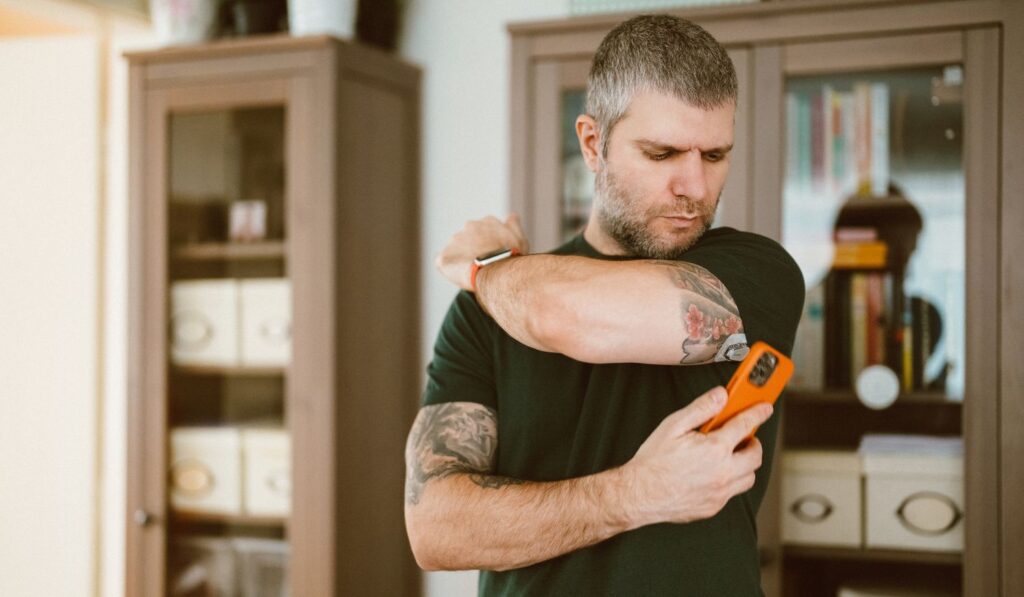al media content to ensure they represent diabetes stigma accurately and positively. This approach counters the stereotypes and misinformation prevalent in our current media landscape and promotes understanding.
The Part That Diabetes Organizations and Governments Play in the Disease
Diabetes and health organizations play a pivotal role in combating stigma. They should embed addressing stigma in their strategic plans and advocate for policies and funding at the government level. They can work on creating health and awareness campaigns that don’t stigmatize or use fear-based language and imagery. Fill out this form to see if you or a friend qualify for Continuous Glucose Monitors.
Research on diabetes stigma is crucial to inform policy and support advocacy movements. Researchers should adhere to the Language Matters guidelines in their work and ensure their study tools do not add to stigma. Governments need to support and fund diabetes-focused initiatives, research, and interventions, while also passing and enforcing legislation that protects individuals with diabetes from discrimination.
Read Guide about Wegovy Dosage Guide: The Best Way For Weight Loss
Addressing Diabetes Stigma in Healthcare
Healthcare professionals and the healthcare system are identified as key perpetrators of diabetes stigma. Therefore, addressing stigma within healthcare settings is crucial. Healthcare professionals should integrate recommendations from the Language Matters movement into their practice and be mindful of the impact of their words and actions.
Avoiding stigmatizing conversation “traps” such as fear-based messaging, asking yes/no questions, or talking down to individuals with diabetes is essential. Creating a stigma-free practice environment, where seating and equipment are suitable for all body types, is also necessary. Moreover, only measuring and sharing an individual’s weight when they wish to know it is a respectful practice that contributes to reducing stigma.
Also, read about Diabetes Care During Armed Conflict
Be a Vocal Advocate and Ally
Individuals can make a powerful impact by speaking up and correcting misinformation and myths about diabetes. Living openly with diabetes helps others better understand the daily realities of managing this condition and can reduce the isolation that many individuals with diabetes feel.
However, the burden of advocacy should not fall solely on individuals with diabetes. Allies, including friends, family members, colleagues, and peers, should also speak up when they witness instances of diabetes stigma and discrimination. By lending their support and amplifying the voices of those with diabetes, allies contribute to positive change.
Take the Pledge to End Diabetes Stigma
In early 2023, a team of researchers, healthcare professionals, and diabetes stigma is a critical issue that negatively impacts the lives of individuals with diabetes worldwide. It manifests as negative social judgments, stereotypes, and prejudices unfairly targeting people with diabetes. The emotional toll of this stigma includes feelings of blame, shame, loneliness, anger, depression, and distress. In our quest to tackle diabetes stigma, we need to change the narrative, encourage the use of inclusive language, and foster collaboration between individuals and organizations.
Must read about CGMs in noncritical care hospitals optimizes glycemic control
Change the Narrative
One of the most impactful steps in combating diabetes stigma is changing the prevailing narrative surrounding diabetes. Currently, this narrative places blame and shame on individuals with diabetes, suggesting that they are solely responsible for “controlling” the disease. To create a more supportive environment, we must replace this misguided narrative with one that considers all factors affecting a person’s risk for diabetes and their ability to manage it.
To achieve this, it’s essential to change the language we use to talk about diabetes. The Language Matters movement is actively working to promote language that is neutral, nonjudgmental, and fact-based. For instance, replacing stigmatizing words like “fail” or “control” with more inclusive language can help challenge stereotypes and prejudices.
Additionally, it’s crucial to engage with the media and creators of socialite advocates to establish an international consensus on combating diabetes stigma. They developed a Pledge to End Diabetes Stigma, which is currently under review for publication. By visiting EndDiabetesStigma.org and signing the pledge, anyone can join a global movement committed to addressing this issue and holding each other accountable.
In conclusion, diabetes stigma is a pervasive problem that negatively affects the lives of people with diabetes. To combat this issue, we must change the narrative, encourage the use of inclusive language, involve various stakeholders, and promote understanding and empathy. By taking these steps, we can work together to create a more supportive environment that challenges stereotypes and prejudices and ultimately reduces diabetes stigma.


